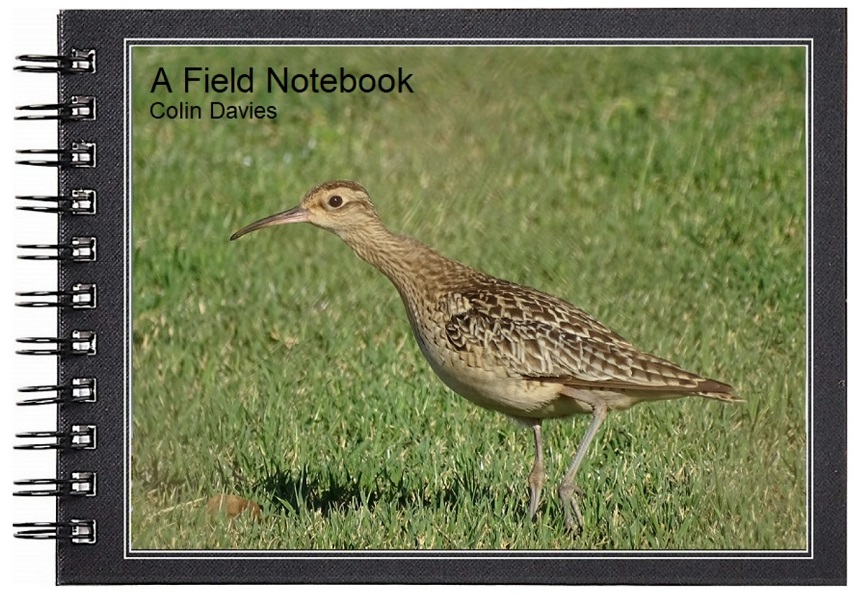Set against all of the fantastic species I saw on my holiday to Cyprus in
December 2014, such as Finsch's wheatear, spur-winged plover, wallcreeper and
greater sandplover, you might think that a chiffchaff would be amongst the
least interesting. You'd be wrong. On 14th December I innocently recorded the
call of one of the many individuals I came across, uploaded it to
xeno-canto
as race brevirostris and put a link to it on my blog, little realising
that it was about to be analysed by some of the leading chiffchaff experts in
the land, and potentially help change our understanding of the wintering ranges
of chiffchaff. Based on these discussions, emails and personal
research, I've put together a summary below of the situation as I see it
regarding wintering chiffchaffs in Cyprus. Thanks to John Harris for his help.
Disclaimer: The following notes are entirely my opinion based on
extremely limited non-scientific observations and do not necessarily represent
the opinions of any other individual.
Virtually from the moment I
arrived in Cyprus I couldn't fail to be aware of chiffchaffs. At first they were
annoying little blighters because I couldn't work out what it was that was
calling. They were a frequent, nagging soundtrack to all of the other
fantastic birds I was seeing as if they were saying "forget that
spur-winged plover, look at me"! The problem was, they weren't calling "huweet"
like the British chiffchaff Phylloscopus collybita collybita, they were calling "peep", in fact a call very similar
to that of Siberian chiffchaff P. c. tristis, and
there were lots of them about. I probably heard upwards of 10 a day,
all over the place in a variety of habitats.
Following a little
research on the Internet I came to the conclusion that in both plumage and call,
these chiffchaffs most closely matched birds from the region of N and W Turkey,
which have been designated as brevirostris by some authors but are merged
with abietinus by others. However at this stage I still had no
knowledge of the status of brevirostris on Cyprus.
Fortunately
I recorded one of the calls and uploaded it to xeno-canto (you can hear it
below). After an initial contact by John Harris, I got involved in email
conversations with several people, including internationally recognised
chiffchaff experts and senior BirdLife Cyprus representatives regarding the
possible race of these birds.
It turned out that
brevirostris has never been officially recorded on Cyprus. The long held
assumption was that over wintering chiffchaffs on Cyprus fall into two races,
P. c. collybita and P. c. abietinus. However, both of these races
call "huweet", a call which I just didn't hear in the 13 days I was on
the island. Everything went "peep".
My recording was analysed, and
based on that analysis it emerged that the Cyprus birds do indeed have a call
matching brevirostris. Far from being unknown on Cyprus my
experience from admittedly limited observations indicate that
brevirostris (whether as a separate race or just a form of
abietinus) is by far the commonest chiffchaff in winter, certainly
in the areas of western Cyprus which I visited.
So I suppose
we can conclude by saying, if future research shows that
brevirostris warrants status as a separate taxon, then this is probably
the race of chiffchaff which overwinters on Cyprus. If not, then the race
occurring on Cyprus in the winter is indeed abietinus but it is the
eastern form which calls "peep" and not "huweeet". Clearly anybody visiting
Cyprus who hears a "peep" needs to consider this before claiming a
tristis. Research into chiffchaff genetics is continuing.....
Friday, 19 December 2014
Subscribe to:
Post Comments (Atom)
Popular Posts
-
There's been a drake bufflehead frequenting the North Wales coast since the beginning of December and finally today I managed...
-
Another great day at Martin Mere, the highlights for me being these two adult spoonbills on the pond outside the United Utilities...






No comments:
Post a Comment